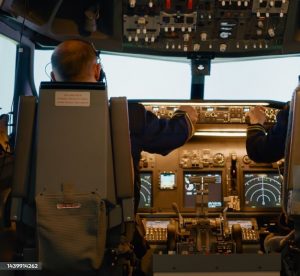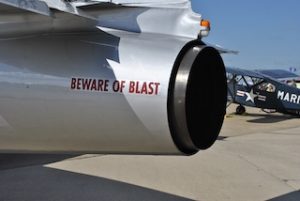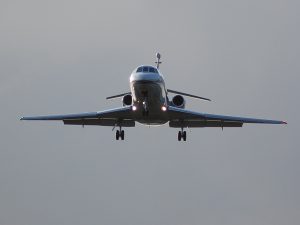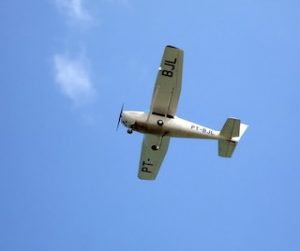Flying Schools Near Me In Kenya
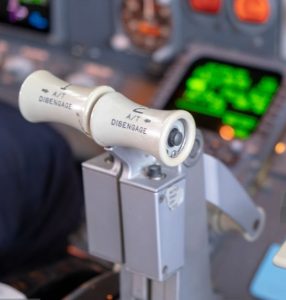 Embarking on a career as a pilot in Kenya offers exciting opportunities given the country’s growing aviation industry and strategic location in East Africa. However, finding the best flying school near you is crucial for ensuring you receive quality training and start your aviation career on the right foot. With numerous flying schools available across Kenya, from Nairobi to Mombasa and beyond, making an informed choice can be challenging. This guide provides a thorough approach to help you find the best flying schools in Kenya, covering essential factors, research strategies, and evaluation tips.
Embarking on a career as a pilot in Kenya offers exciting opportunities given the country’s growing aviation industry and strategic location in East Africa. However, finding the best flying school near you is crucial for ensuring you receive quality training and start your aviation career on the right foot. With numerous flying schools available across Kenya, from Nairobi to Mombasa and beyond, making an informed choice can be challenging. This guide provides a thorough approach to help you find the best flying schools in Kenya, covering essential factors, research strategies, and evaluation tips.
Aviation training landscape in Kenya
Kenya has a vibrant aviation sector supported by several flying schools near me that cater to various needs, from private pilot licenses to advanced commercial and airline transport pilot training. Before diving into the search for a flying school, it’s essential to understand the aviation training landscape:
- Aviation regulations: The Kenya Civil Aviation Authority (KCAA) oversees aviation training and ensures that flying schools comply with national and international standards. Familiarise yourself with KCAA regulations to understand the requirements and expectations for pilot training.
- Types of pilot licenses: Determine which pilot license you need based on your career goals. In Kenya, you can pursue various licenses, including:
- Private Pilot License (PPL): For personal flying.
- Commercial Pilot License (CPL): For commercial flying and employment.
- Airline Transport Pilot License (ATPL): For commanding commercial airliners.
- Instrument Rating (IR): For flying under instrument flight rules.
- Multi-Engine Rating (ME): For flying aircraft with multiple engines.
Steps to find the best flying schools near you in Kenya
1. Identify your training needs and goals
Before starting your search, clearly define your training needs and career aspirations:
-
- Career goals: Are you aiming for a private, commercial, or airline transport pilot license? Your goals will influence the type of training you require and the schools that best suit your needs.
- Training duration: Determine how quickly you want to complete your training. Some schools offer accelerated programs, while others provide more flexible timelines.
- Budget: Assess your budget for flight training, including tuition, additional fees, and potential financing options.
- Location preferences: Decide whether you prefer a flying school close to home or are open to traveling to different regions of Kenya.
2) Conduct online research
Start your search by utilising online resources to identify potential flying schools:
-
- Search engines: Use search engines like Google to find flying schools in Kenya. Keywords such as “flying schools in Kenya,” “pilot training Nairobi,” or “aviation schools Mombasa” can help you locate options in your area.
- Aviation forums and websites: Explore aviation forums and websites dedicated to pilot training and aviation careers. These platforms often feature reviews, recommendations, and discussions about flying schools in Kenya.
- Social media: Leverage social media platforms and aviation-related groups. You can find reviews, recommendations, and updates about flying schools through platforms like Facebook, LinkedIn, and Twitter.
3) Check accreditation and certification
Ensure that the flying schools you are considering are accredited and recognised by relevant authorities:
-
- KCAA Accreditation: Verify that the flying schools are accredited by the Kenya Civil Aviation Authority (KCAA). Accreditation ensures that the school meets national and international standards for aviation training.
- International recognition: If you plan to fly internationally, consider whether the school’s certifications and training are recognised by other aviation authorities, such as the Federal Aviation Administration (FAA) or the European Union Aviation Safety Agency (EASA).
4) Evaluate facilities and equipment
Assess the quality of the facilities and equipment provided by the flying schools:
-
- Aircraft fleet: Visit the flying schools to inspect their fleet of training aircraft. Ensure that the aircraft are modern, well-maintained, and equipped with up-to-date avionics and safety features.
- Flight simulators: Check if the school has high-quality flight simulators. Advanced simulators can enhance your training experience by allowing you to practice various scenarios and emergency procedures.
- Classroom facilities: Evaluate the classroom facilities and instructional materials. Well-equipped classrooms with modern technology are essential for effective theoretical training.
5) Research instructor experience and qualifications
The quality of instruction is crucial for your training experience:
-
- Instructor credentials: Investigate the qualifications and experience of the instructors. They should hold relevant certifications, such as Certified Flight Instructor (CFI) ratings, and have experience in the type of flying you intend to pursue.
- Instructor-to-student ratio: Consider the instructor-to-student ratio. A lower ratio often means more personalised attention and a better learning experience.
- Student feedback: Seek feedback from current or former students about their experiences with the instructors. Positive reviews and testimonials can indicate effective teaching and supportive mentorship.
6) Examine curriculum and training programs
Review the curriculum and training programs offered by each flying school:
-
- Program structure: Assess the structure of the training programs. Ensure that they align with your career goals and include all necessary components for obtaining the desired pilot license.
- Additional courses: Check if the school offers additional courses or specialized training, such as instrument ratings or multi-engine ratings. These courses can be beneficial for advancing your career.
- Accredited programs: Look for schools with accredited programs that adhere to industry standards and provide a comprehensive curriculum.
7) Consider career support and job placement
Evaluate the career support and job placement services offered by the flying schools:
-
- Job placement assistance: Inquire about the school’s job placement assistance and career support services. Schools with strong industry connections and job placement programs can help you secure employment after graduation.
- Networking opportunities: Find out if the school offers networking opportunities, such as industry events, internships, or partnerships with airlines. Networking can be valuable for career advancement and finding job opportunities.
- Alumni success: Research the success of the school’s alumni. Schools with a strong track record of successful graduates can provide a better indication of the quality of training and career support.
8) Evaluate financial considerations
Consider the financial aspects of training:
-
- Tuition costs: Compare the tuition costs of different flying schools. Ensure you understand what is included in the tuition fees, such as flight hours, ground school, and materials.
- Financing options: Explore financing options offered by the school, such as payment plans, scholarships, or loans. Some schools may have partnerships with financial institutions to help students manage the cost of training.
- Value for money: Assess the overall value for money. A higher tuition fee may be justified if the school offers superior facilities, experienced instructors, and strong career support.
9) Visit and tour the schools
Arrange visits to the flying schools you are considering:
-
- Facility tours: Schedule visits to tour the facilities, meet instructors, and observe classes. A firsthand perspective can provide valuable insights into the quality of training and the learning environment.
- Trial flights: Some schools offer introductory flights or trial lessons. Taking advantage of these opportunities can give you a sense of the school’s training approach and help you determine if it’s the right fit for you.
- Ask questions: During your visit, ask questions about the curriculum, training methods, instructor qualifications, and any other concerns you may have. A reputable school will be open and transparent about their programs and operations.
Flying schools in Kenya
Here are some notable flying schools in Kenya that you might consider:
- Kenya School of Flying (KSF): Located in Nairobi, KSF offers a range of pilot training programs, including private, commercial, and airline transport pilot licenses. Known for its experienced instructors and modern facilities, KSF is a popular choice for aspiring pilots.
- East African School of Aviation (EASA): Based in Nairobi, EASA provides comprehensive pilot training and aviation courses. The school is well-regarded for its strong industry connections and career support services.
- Skyways Aviation Academy: With facilities in Nairobi and Mombasa, Skyways offers a variety of pilot training programs and has a reputation for high-quality instruction and modern aircraft.
- Fly540 Aviation Academy: Located in Nairobi, Fly540 offers professional pilot training with a focus on practical skills and industry-relevant experience.
- Mombasa Aviation Training Centre (MATC): Based in Mombasa, MATC provides pilot training programs and is known for its strong emphasis on hands-on flight experience.
Conclusion
Finding the best flying school near you in Kenya involves a careful evaluation of your training needs, researching potential schools, and considering factors such as accreditation, facilities, instructor qualifications, and career support. By following the steps outlined in this guide, you can make an informed decision and choose a flying school that aligns with your career goals and provides the quality training necessary for a successful aviation career.
Investing time and effort into finding the right flying school will pay off in the form of quality education, valuable industry connections, and a fulfilling career as a pilot. Whether you are based in Nairobi, Mombasa, or another region of Kenya, selecting the best flying school is a crucial step towards taking to the skies and achieving your dreams in aviation.

